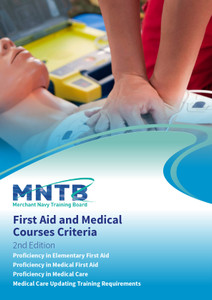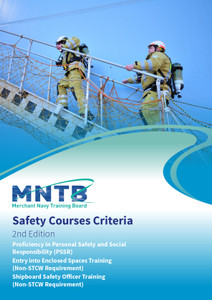
This publication provides criteria for the development of courses to deliver training in the safe control and management of marine high voltage power systems, at operational and management levels, in accordance with international regulations for seafarer training.
This aim of this publication is to help create training courses that provide seafarers with the necessary knowledge, understanding and proficiency to safely control and manage high voltage power systems in accordance with international regulations. Training courses developed in line with these criteria will cover:
- High voltage power systems at operational level
- high voltage power systems at management level.
The specifications described in this document have been developed by the Merchant Navy Training Board (MNTB) in conjunction with the Maritime and Coastguard Agency (MCA) and satisfy MCA requirements for approved training.
What this document is about
This document provides the criteria for the development of courses to deliver training in the safe control and management of marine high voltage power systems, at operational and management levels, in accordance with international regulations for seafarer training.
Training courses developed in line with these criteria, delivered at centres approved by the Maritime and Coastguard Agency (MCA), will cover:
- High voltage power systems at operational level (section 2)
- High voltage power systems at management level (section 3)
The specifications described in this document have been developed by the Merchant Navy Training Board (MNTB) in conjunction with the Maritime and Coastguard Agency (MCA).
The MCA has agreed with the MNTB that the specifications described in this document will satisfy the requirements for approved training. Conditions for MCA approval of short courses are contained in Annex A, which should be used in conjunction with the MCA guide to approval of regulatory training requirements.
The national occupational standard relating to this training is:
C24 – Manage the safety of vessel high voltage electrical systems.
There is also a suite of Maritime Studies Qualifications which contains a unit relevant to this training; the specific unit is:
Marine high voltage vessel awareness.
Why these criteria have been developed
These criteria have been developed to deliver education and training covering marine high voltage power systems to meet specific parts of the regulatory requirements of Tables A-III/1 (operational level) and A-III/2 (management level) of the Annex to the International Convention on Standards of Training, Certification and Watchkeeping for Seafarers (STCW), 1978, as amended, hereafter referred to as STCW.
Who the training is aimed at
This training is required by seafarers seeking certification under:
a. STCW Regulation III/1 – officers in charge of an engineering watch in a manned engine room or designated duty engineers in a periodically unmanned engine room;
b. STCW Regulation III/2 – chief engineer officers and second engineer officers on ships powered by main propulsion machinery of 3,000 kW propulsion power or more.
Aims of the training
The overall aim is to provide seafarers with the necessary knowledge, understanding and proficiency to safely control and manage marine high voltage power systems in accordance with international regulations.
Section One: Introduction
Section Two: High voltage course criteria - operational level
Section Three: High voltage course criteria - management level
Annex A: MCA approval of short courses
Annex B: STCW Code
Annex C: Instructor/assessor qualification and experience requirements
Annex D: Specimen certificates:
(i) High voltage training operational level
(ii) High voltage training management level
The Merchant Navy Training Board is the shipping industry’s central body for promoting and developing sector specific education, training and skills.
- Number of Pages:
- 15
- ISBN:
- 9781856097895
- Binding Format:
- Paperback
- Book Height:
- 300 mm
- Book Width:
- 210 mm
- Weight:
- 0.3 kg
- Author:
MNTB
- Published Date:
- August 2018
- Preview:
- Yes




